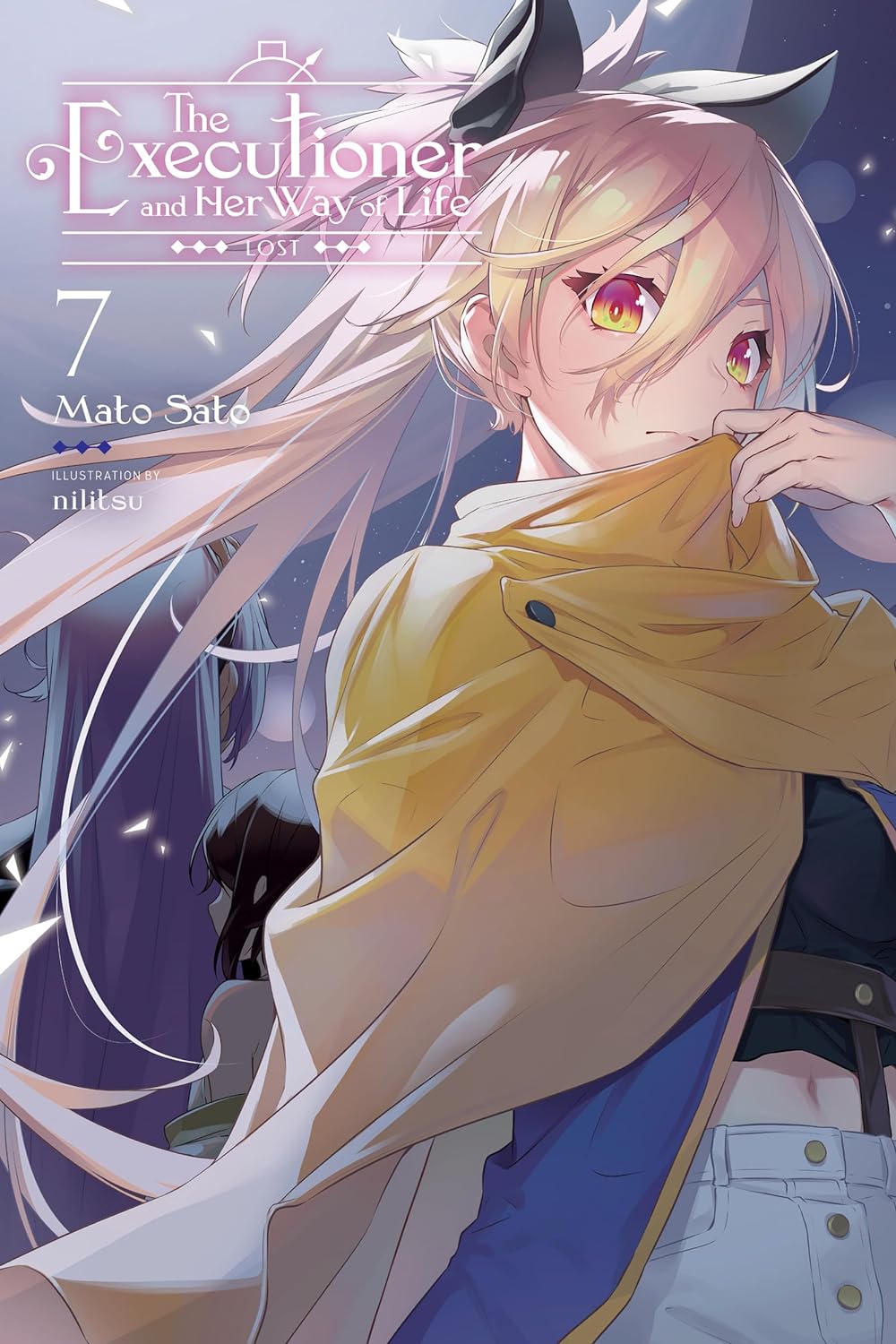By Mato Sato and nilitsu. Released in Japan as “Shokei Shoujo no Virgin Road” by GA Bunko. Released in North America by Yen On. Translated by Jenny McKeon.
First of all, big props to the author for actually keeping my attention through the first half of this volume. I’ve talked before about how the first half of these recent books have all been dire, so this is a definite step up. More seriously, I also noticed while reading this volume how compact the cast list is. This is basically a variation of shonen battle manga, in a sci-fi sort of vein, and each volume needs to escalate the danger because our heroes need a bigger threat. But the threats we’re seeing have been around since the start, they’re just coming back because everyone in this series is damn near impossible to permanently kill. Hell, even one of the cast from a thousand years ago is a supporting character in this book due to (handwaves) reasons. The “new” antagonist who threatens our heroines with bigger and bigger guns turns out to have been accidentally stifled by Sahara four books ago, and she doesn’t even remember it. So sad.
Menou, Abbie, Sahara and Maya have arrives in the wilds of the north, where they come across the stunning city of ruins, which is not only still intact after so long but is also technically TWO cities… there’s a second one upside down above the first. Unfortunately, they can’t simply sit around and watch terrible movies about sharks in space – not only is one of the biggest mobster bad guys around trying to kill the woman who killed off Flare, for tragic backstory reasons, but also Pandaemonium is here somewhere as well, and Maya, for obvious reasons, wants to try to stop her. Fortunately, the four of them have some help in the form of an ally thought long dead. UN-fortunately, Momo is there as well, and she’s got her own agenda, one that Menou really isn’t going to like.
As usual, I loved Sahara here, who continues to be forced to care and be heroic against her will. The final scene where she takes out one of the big bads because, among many other reasons, she never got breakfast OR lunch today is hilarious but also dead on. Sometimes you’ve got to let compassion fall by the wayside because you’re too cranky. More impressively, I really enjoyed reading Menou in this book. I’ve made no secret about the fact that Menou is my least favorite of the many “good guys” in this series, but here she’s given subtext that makes you pay attention to her – she’s losing more and more of her self. She’s already forgotten everything about Momo, which does not bode well for when the two inevitably meet up again, but seeing her casually take a scripture because she can’t remember why she wouldn’t be using one is chilling because she REMINDS us why earlier in the book. She’s falling to bits. Still not optimistic this will end with any of the main cast alive.
The yuri may be thin on the ground these days, but it IS driving most of the character motivation deep down, so that’s fine. This was good. I look forward to the 9th book. Which only came out in Japan 6 months ago, so we may have to wait more.



